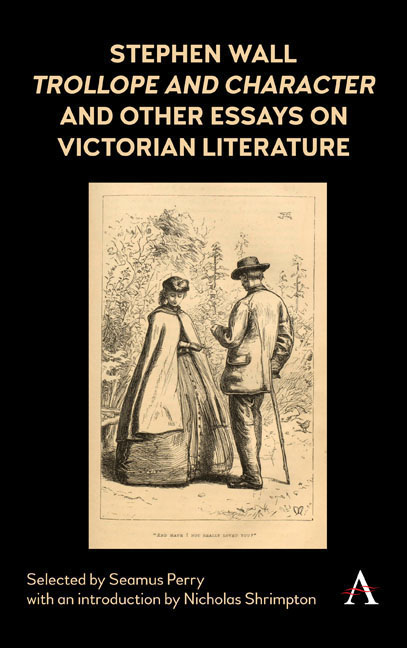Book contents
- Frontmatter
- Contents
- Preface
- Introduction: Stephen Wall and Trollope
- Part 1 On Trollope
- Part 2 On Dickens and Others
- 3 [George Eliot and Her Readers] [1965]
- 4 Jane Austen's Judgments [1968]
- 5 Dickens: New Words and Old Opinions [1969]
- 6 [Dickens and His Readers] [1970]
- 7 Dickens in 1970 [1971]
- 8 Annotated English Novels? [1982]
- 9 Affective Intentions [1985]
- 10 Virtuoso Variations [1987]
- 11 Going Beyond the Repertory [1990]
- 12 A Little Local Irritation [1998]
- Index
7 - Dickens in 1970 [1971]
from Part 2 - On Dickens and Others
Published online by Cambridge University Press: 25 July 2018
- Frontmatter
- Contents
- Preface
- Introduction: Stephen Wall and Trollope
- Part 1 On Trollope
- Part 2 On Dickens and Others
- 3 [George Eliot and Her Readers] [1965]
- 4 Jane Austen's Judgments [1968]
- 5 Dickens: New Words and Old Opinions [1969]
- 6 [Dickens and His Readers] [1970]
- 7 Dickens in 1970 [1971]
- 8 Annotated English Novels? [1982]
- 9 Affective Intentions [1985]
- 10 Virtuoso Variations [1987]
- 11 Going Beyond the Repertory [1990]
- 12 A Little Local Irritation [1998]
- Index
Summary
Dickens's reputation has finally caught up with his popularity: that much, at least, can be deduced from the dozen or so books on him published during 1970. Twenty years ago, the assertion that Little Dorrit was the greatest English novel might have had a challenging air (the challenge offered, obviously enough, to Middlemarch); reiterated now, the claim appears not merely plausible but soothingly predictable. F. R. Leavis's protest that Little Dorrit's place on ‘any brief list of the great European novels’ has not been generally conceded, is hardly borne out by a course of centenary criticism. John Lucas, for instance, thinks it ‘far and away the greatest novel in the language’; H. M. Daleski feels that, although not in the Our Mutual Friend class, Little Dorrit is still one of four novels constituting ‘the supreme achievements of the English novel of the nineteenth century’. In fact, whatever a critic's individual preferences, his analysis of Dickens's mature work – often, of most of his work – is now almost bound to be deeply respectful, even if it is not very likely to earn Dr Leavis's respect.
It was not always so, as Philip Collins's Critical Heritage volume reminds us; in the early days Little Dorrit ‘became a by- word for the bad Dickens’. His selection from the original reviews substantiates what we have known in outline since Dickens's reputation was traced by George H. Ford: the latter novels were disliked by most of the better critics. The Times obituary was clear that Dickens's masterpiece would be found in ‘the first ten or twelve years of his literary life’. Henry James's withering notice of Our Mutual Friend has been reprinted often enough, but it is useful to have easily available the hostile but intelligent critiques of Mrs Oliphant, in Blackwood's, and Fitzjames Stephen, in the Saturday Review.
Early periodical criticism of Dickens was often prolix in the Victorian way, and Professor Collins has rightly not hesitated to subedit drastically. In some cases, such as R. H. Horne's New Spirit of the Age essay of 1844, he has pruned too severely; he has lopped, for instance, Horne's extended comparison of Hogarth and Dickens.
- Type
- Chapter
- Information
- Publisher: Anthem PressPrint publication year: 2018



